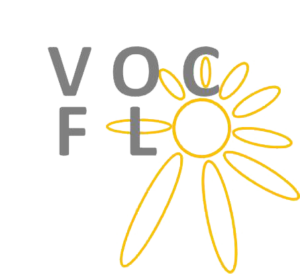
European mobility network for vocational training in floristry
Erasmus+ VET KA2 Strategic Partnership (2015-2018) DE, CZ, LT, NO, NL, PL, SK
Sächsische Bildungsgesellschaft für Umweltschutz und Chemieberufe Dresden (www.sbg-dresden.de ): 2015-1-DE02-KA202-002460
The project responds to current VET policy developments in the European Union. These in turn are a response to the economic policy objectives of the Agenda 2020.
The EU aims to ensure that by the year 2020 75 % people in the working age are in employment. The currently extremely high youth unemployment rates in many European regions shows that efforts are needed to achieve this goal.
One of the causes of youth unemployment is seen in the lack of employability of graduates of vocational training. It is criticized, that many VET systems generate not employable graduates and offer insufficient opportunities to acquire professional and personal skills that are demanded by the labor market.
The EU calls on its members, therefore, to reform their national vocational education and training system. VET institutions and business have to cooperate with each other to compensate the current deficits.
This is the starting point or leverage for the project. Training institutions with a floristic profile, a service industry that provides employment opportunities especially to women, develop the conceptual foundations for a future business-related training in this sector. They agree on units of learning outcomes and learning outcomes to arrange this. In order to facilitate the transfer of these units of learning outcomes in educational practice, pedagogical guidance for teachers and a method for measuring the learning outcomes are designed.
The development of these documents is carried out in close cooperation with the professional associations of the sector. With the National Association of Saxony Association of German Florists (Landesverband Sachsen des Fachverbandes Deutscher Floristen) a professional association is a member of the project consortium. The single educational institutions cooperate with the florist associations at their national level.
The project results will be examined on their practicality and ability to fit with the various training systems during carrying out of methodology workshops and student camps.
To ensure the sustainability and the support during the transfer of the results of the training, we founded a mobility network for VET in floristry. The network will offer in the future cross-border mobility’s. During this mobility’s the participants can complete selected units of learning outcomes.
Among the product of the project, there will be also an organisational handbook for mobility’s. The course of the project is documented by an experience report. This report is also used to disseminate the project results.
The project will contribute to the improvement of the quality of training in floristry (strengthening the business relevance of the training) and it improves the transparency between European professional qualifications and open up opportunities to strengthen cross-border cooperation’s in training and for carrying out training mobilities.

